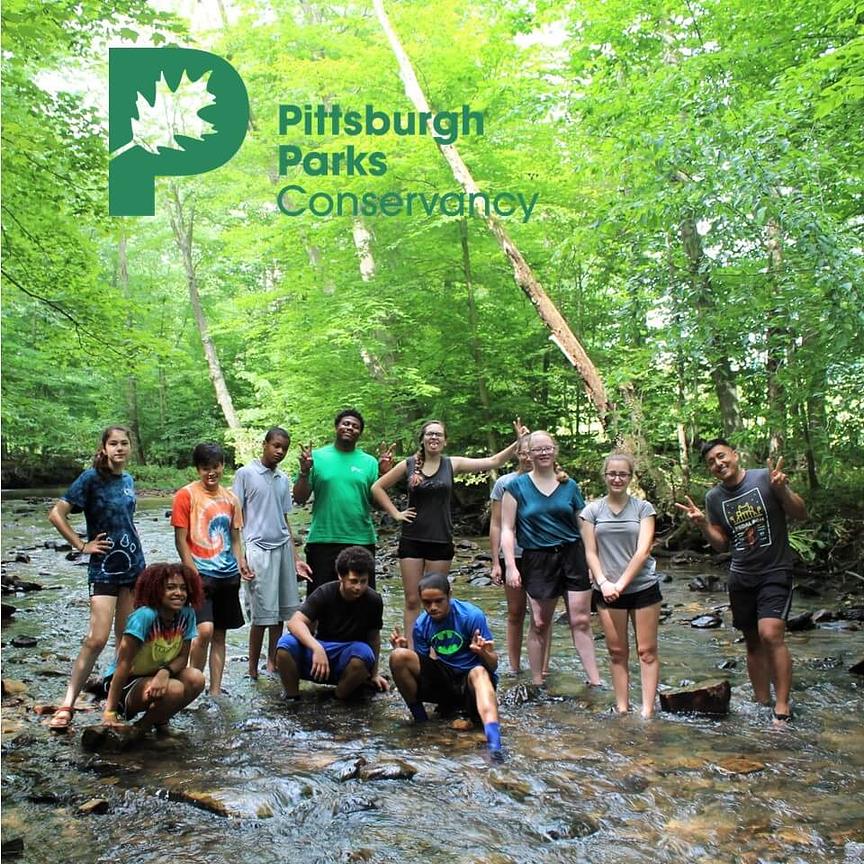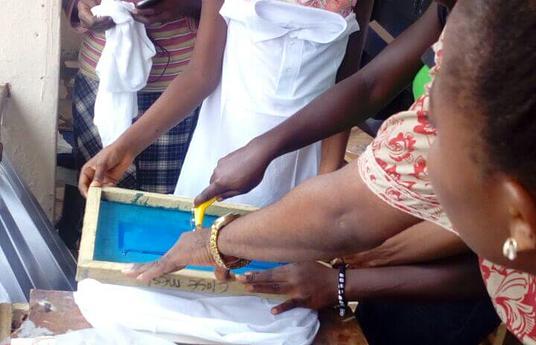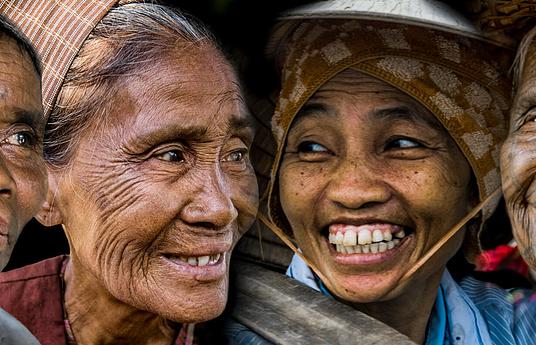Starting in 2014, educators from the Pittsburgh Parks Conservancy (PPC) worked with a researcher from the University of Pittsburgh’s Science Learning Activation Lab to design a supported learning pathway to bridge in-school and out-of-school experiences for teens interested in nature and the environment. Since then, the pathway has expanded to connect with a wide range of partners, programs and people in the regional landscape of outdoor learning opportunities.
Learning pathways are the conceptual routes that a person takes to follow their interests and gain knowledge, skills or expertise. These pathways may consist of a combination of in-school, out-of-school and/or online learning experiences. Each step in a student’s pathway connects to, and builds on, other formal and informal learning experiences throughout their lifetime.
Our pathway is built around Young Naturalists, a five-week paid internship for high school students who study ecology, gain outdoor work and leadership experience, and collaborate with a diverse cohort of other teenagers who are interested in the environment. Throughout the summer, participants engage in meaningful, paid work doing research and restoration in an urban park in Pittsburgh, PA.
To reach a diverse pool of applicants, PPC formed strategic partnerships with classroom teachers, schools, community groups and other youth-serving organizations. Formal and non-formal educators intentionally recognize and affirm students in school-based, afterschool, summer, community and volunteer programs, and support those students during the application and interview process for Young Naturalists. As a result, the program brings together participants from a wide range of neighborhoods, schools and organizations and promotes teamwork and friendship between people with diverse perspectives, skill sets and backgrounds.
The base of the program pipeline utilizes threshold experiences - programs designed to engage students with varying levels of prior experience in the outdoors in a safe, fun and welcoming environment. Threshold experiences prepare students for deeper engagement by building their comfort and confidence outdoors, by engaging their personal interests, and by developing social capital among students and staff members across multiple visits.
Many teens growing up in Pittsburgh have limited exposure to the outdoors. Even for those that have experience, it can be challenging to find peers who share their passion and curiosity for nature. They may feel isolated if opportunities to experience nature aren’t apparent or accessible to them, or if their family and friends aren’t interested in the same things. Threshold experiences provide a place where students are free to discover and explore these interests.
Adults play an important role in supporting teens to find next step learning opportunities by connecting them with people, programs and organizations that provide positive experiences. By leveraging personal relationships built on trust and familiarity with the students, we can better ensure that youth find the right fit for their interests, abilities and personality. This intentional practice of connecting students with future learning opportunities is called brokering.
The responsibility for brokering has traditionally fallen on parents and guardians, but this can be greatly impacted by a parent’s awareness of opportunities and their ability to provide support like time, money and transportation. As adults who are knowledgeable about regional learning opportunities, we are uniquely able to provide guidance and support for teens (and their parents) as they navigate the complex landscape of outdoor learning opportunities. By positioning ourselves as learning brokers and designing our programs and partnerships with a focus on equitable access, we have built a close-knit community among diverse teens who share a common interest in nature and the outdoors.



